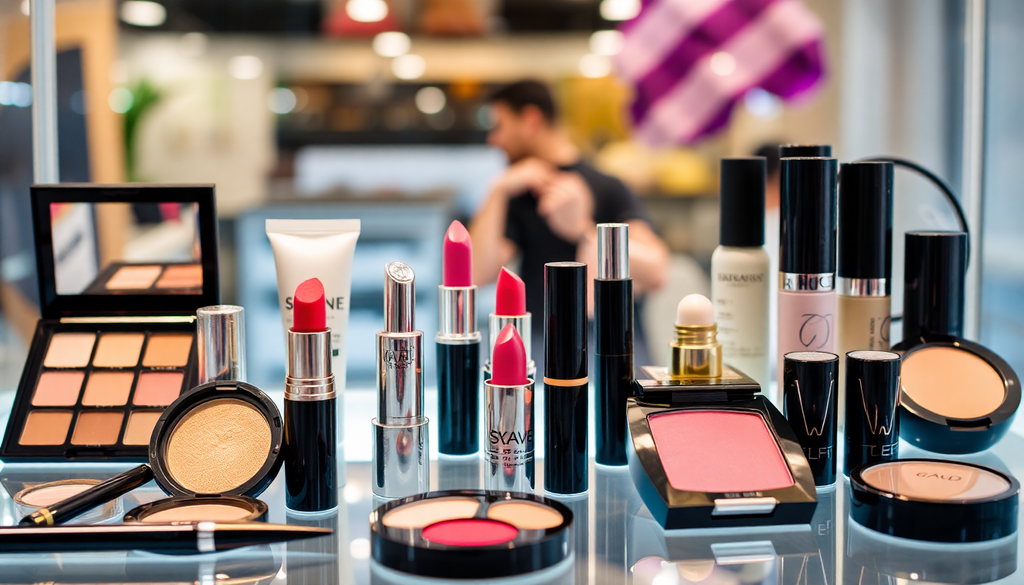
Essential Strategies for Launching Your Private Label Makeup Brand in New Zealand: Navigating Import Policies and Certification Requirements in 2025
Introduction
Launching a private label makeup brand in New Zealand in 2025 is an exciting venture, but it requires careful planning and understanding of various regulatory frameworks. With the beauty industry continuously evolving, aspiring entrepreneurs must navigate import policies, certification requirements, and effective marketing strategies to ensure their brand stands out in a competitive market. This comprehensive guide will provide you with essential strategies to successfully launch your makeup brand.
Understanding Import Policies
Before you can sell your makeup products in New Zealand, you must familiarize yourself with the import policies governing cosmetics. Here are some crucial points to consider:
- Customs Regulations: Compliance with the New Zealand Customs Service regulations is paramount. Understand the Harmonized System (HS) codes that classify your products to determine applicable duties and taxes.
- Tariffs and Duties: Research the specific tariffs and duties applicable to your cosmetics. Certain products may qualify for preferential treatment under trade agreements, so be sure to check if your products are eligible.
- Documentation: Prepare all necessary documentation for customs clearance, including invoices, packing lists, and certificates of origin. This documentation can help smooth the import process and avoid delays.
- Prohibited and Restricted Items: Be aware of any ingredients or products that are prohibited or restricted in New Zealand. The Ministry for Primary Industries (MPI) provides guidelines to help you understand what can and cannot be imported.
Certification Requirements
To legally sell makeup products in New Zealand, adherence to specific certification requirements is essential. Here are the key aspects:
- Product Safety: All cosmetics must comply with the New Zealand Cosmetic Safety Standards. This includes ensuring that your products are safe for consumers and do not contain harmful substances.
- Labeling Compliance: Ensure that your product labels meet the Consumer New Zealand's labeling requirements. This includes listing all ingredients, providing instructions for use, and indicating any allergens.
- Animal Testing Regulations: Familiarize yourself with New Zealand’s stance on animal testing. Products should not be tested on animals, and you may need to provide proof of compliance.
- Cosmetic Notification Scheme: Register your products under the Cosmetic Notification Scheme if applicable. This scheme is designed to enhance consumer safety and transparency in the cosmetics market.
Setting Up Your Online Store
In the digital age, an online store is crucial for marketing and sales. Here’s how to set up your e-commerce platform effectively:
- Choose an E-commerce Platform: Select a platform that suits your business needs. Popular options include Shopify, WooCommerce, and BigCommerce, each offering various features tailored for beauty brands.
- Design Your Website: Focus on creating an aesthetically pleasing design that reflects your brand identity. Use high-quality images and engaging content to captivate your audience. Ensure your website is mobile-friendly for users on the go.
- Optimize for SEO: Implement SEO strategies to improve your website's visibility. Use keyword research to identify terms your target audience searches for and incorporate them into your product descriptions, blog posts, and meta tags.
- Payment Gateway: Integrate secure payment gateways such as PayPal, Stripe, or Afterpay to facilitate smooth transactions. Ensure your customers' data is protected through SSL certification.
- Shipping and Fulfillment: Develop a reliable shipping strategy that includes local and international options. Partner with reputable couriers to ensure timely delivery and consider offering free shipping for orders over a certain amount to incentivize purchases.
Marketing Your Makeup Brand
Effective marketing strategies are essential to promote your brand and reach your target audience. Here are actionable marketing approaches:
- Social Media Marketing: Utilize platforms like Instagram, Facebook, and TikTok to showcase your products. Create visually appealing posts and stories that highlight product features, tutorials, and user-generated content. Collaborate with beauty influencers to extend your reach.
- Content Marketing: Establish a blog on your website to create valuable content that resonates with your audience. Share beauty tips, makeup tutorials, and industry news to position your brand as an authority in the cosmetics space.
- Email Campaigns: Build an email list to keep customers informed about new product launches, promotions, and beauty tips. Use engaging newsletters to maintain interest and encourage repeat purchases.
- Search Engine Advertising: Consider utilizing Google Ads to target specific keywords related to your products. This can help increase visibility and drive traffic to your online store.
- Collaborations and Partnerships: Partner with local beauty salons, influencers, or even other brands to create limited-edition products or bundles that can attract new customers and enhance brand visibility.
Building Your Brand Identity
Establishing a strong brand identity is crucial for standing out in the competitive makeup market. Here are some tips:
- Define Your Target Audience: Understand who your ideal customers are and tailor your branding and messaging to resonate with their preferences and needs.
- Develop a Unique Value Proposition: Identify what sets your makeup brand apart from competitors. This could be your product quality, unique ingredients, or commitment to sustainability.
- Create a Memorable Brand Name and Logo: Your brand name and logo should reflect your identity and values. Ensure they are memorable and easily recognizable.
- Consistent Branding: Maintain consistency in your branding across all platforms, from your website to social media. This includes color schemes, fonts, and overall messaging.
Managing Finances and Operations
Successful management of finances and operations is crucial for sustaining your brand. Here are some strategies to consider:
- Budgeting: Create a detailed budget that outlines startup costs, ongoing expenses, and projected revenue. This will help you manage your finances effectively and make informed decisions.
- Inventory Management: Implement an inventory management system to keep track of stock levels, sales trends, and reordering needs. This can help prevent overstocking or running out of popular products.
- Financial Reporting: Regularly review financial reports to assess your brand’s performance. Use tools like QuickBooks or Xero to streamline bookkeeping and accounting.
- Seek Professional Advice: Consider consulting with a financial advisor or accountant who specializes in e-commerce businesses to ensure you’re making sound financial decisions.
Conclusion
Launching a private label makeup brand in New Zealand requires a comprehensive understanding of import policies, certification requirements, marketing strategies, and effective brand management. By following the strategies outlined in this guide, you can navigate the complexities of the beauty industry and position your brand for success in 2025. Start planning today, and take the first step toward making your dream of owning a makeup brand a reality!
Share

Essential Insights for Starting Your Makeup Line: Navigating Private Label Cosmetics, Import Regulations, and Effective Marketing Strategies in New Zealand 2025



